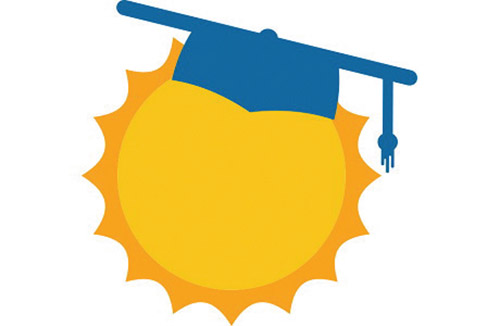
It’s May. It’s finally, finally sunny and warm. Lag B’Omer didn’t get rained out, Shavuot is around the corner, and our thoughts now turn toward graduations, summer vacations and camp. Everyone is ready for the recharging that sunshine and summer break provides.
And yet, as educators, our jobs for this year are not complete; there are still skills to solidify, content to teach, projects to finish, celebrations to plan. There are reports to write, new classes to create, and materials to order. All this and more, in an effort to make sure that our children end the year successfully, and we in turn are ready to greet them again on the first day of school, a mere 10 weeks after we bid them farewell on the the last. Likely, this is all happening with a bunch of mismatched supplies. There is some truth to the memes making their way around on social media; yes, glue sticks really have lost their caps, markers truly are dried out (except maybe for a random brown or light green), pencils (particularly those that still have erasers) are but a memory, and scissors long ago lost their edge. Despite this, teachers are forging ahead, not just continuing to encourage their students to think, learn and do more, but are writing end-of-year report cards and anecdotals and sitting in meeting after meeting focusing on preparations for next year. Many are also putting thought and time into preparing summer review packets, reading lists and activities along with incentives for those who complete their summer packets.
Attitudes toward these summer packets (notice I am not referring to this as summer “homework”) range from “This is great and so helpful!” to “Why do we need this? It’s going to sit in my kid’s backpack until August when we clean it out to be repacked with new school supplies.” Even professionals in the field disagree on the concept of summer practice. Nancy Kalish, co-author of “The Case Against Homework: How Homework Is Hurting Our Children and What We Can Do About It,” argues that summer work “steals” precious play and socialization time from children, forces them to sit rather than move, and in many cases results in children resenting school. On the other hand, there is the opinion that by not giving students academic tasks during the summer we are teaching them to compartmentalize; that “learning” only happens in a “classroom” and is a “school thing.” Furthermore, there is some research to support that summer reading is much more important than summer math, and children who do not read in the summer actually come back to school having lost ground in their literacy skills.
Hopefully, by this point in the year there are no surprises. You know how your child is doing in school and have been made aware of his or her strengths and areas of challenge. You know what work needs to be done in order for your child to be ready for the next grade. Presumably you’ve had more conversations with your child’s teachers this year than just the five minutes you get with them at parent-teacher conferences. You know if the summer review is a “nice idea” or an “academic necessity.”
Either way, summer reading and review activities teach children that learning happens all the time, not just during the school day or school year. It is an opportunity for children to make the connection between exercising your brain and exercising your body. Just like an athlete continues to practice every day no matter how good he or she is at his or her sport, your brain also needs daily exercise to keep it strong and sharp. When put in those terms, and when the dreaded “H” word (homework) is eliminated, you are setting your child up to be less resistant to the work, and therefore more likely to complete it and gain something from the task.
There is no doubt that children deserve time to be off schedule, homework free, and given time for self-directed activities. But a few minutes a day of some academic work, whether school-assigned or parent-generated, should be a part of every child’s summer routine. Let them see that learning can be fun, that practice makes perfect, and that learning is a lifelong endeavor. For all students, those for whom learning comes easily and those who struggle, summer provides a wonderful opportunity to explore new topics and interests, to delve into a genre they’ve never read or learned, or continue to build upon the knowledge and skills gained between September and June. With careful planning and some creativity, summer learning can be fun and not forced, and complement rather than conflict with all those vitally important summer activities we all—children, parents and educators alike—so look forward to.
By Stacy Katzwer
Stacy Katzwer is the elementary school principal at Tenafly Chabad Academy. Mrs. Katzwer has been in the field of education, both in the classroom and as an administrator, for over 20 years. Mrs. Katzwer has extensive experience and training in working with children with learning challenges, has presented at professional development workshops and been involved in teacher training and mentoring of new teachers. She has a private practice in Teaneck, New Jersey, and can be reached at skatzwer29@gmail.com.












